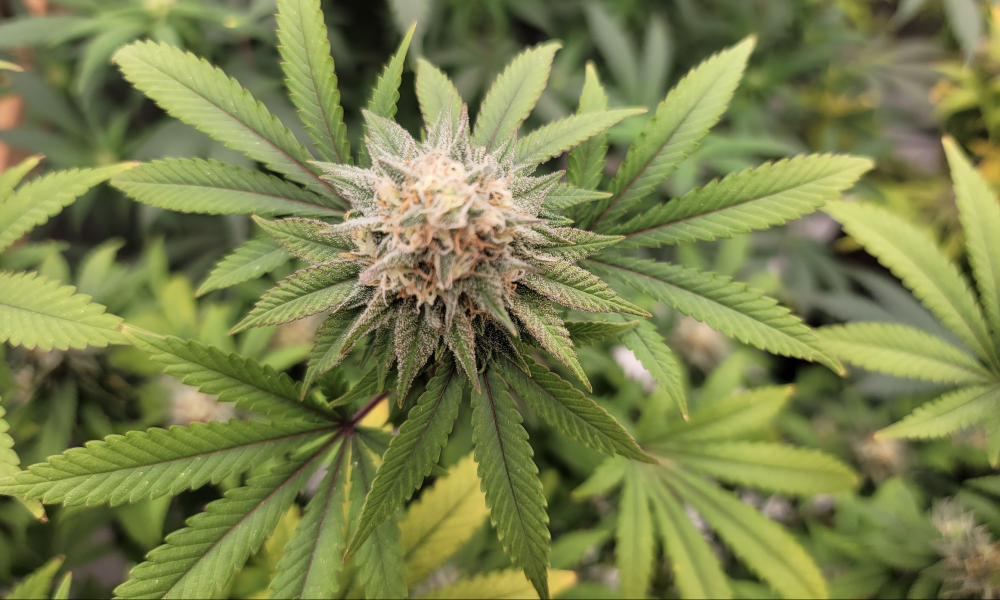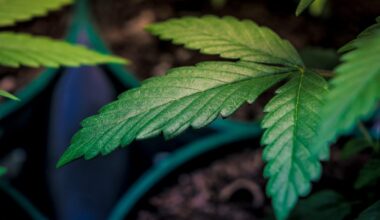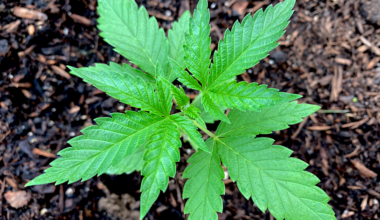Nebraska lawmakers and advocates are considering new paths forward for marijuana reform—including pursuing recreational legalization on the 2024 ballot or convening a special legislative session to pass medical cannabis in the interim—after state officials announced that a medically focused reform campaign had come up short on signatures to put their measures before voters this year.
Nebraskans for Medical Marijuana (NMM) faced a number of complications as they collected signatures for a pair of initiatives, and the secretary of state’s office delivered the news on Monday that they didn’t have enough valid petitions to qualify for the November ballot.
Part of the problem this year was the loss of critical funding. NMM’s Crista Eggers says that the campaign will now consider pivoting to adult-use legalization for the 2024 ballot, which could attract more deep-pocketed donors to help them cross the finish line.
“There is nothing off the table about how we get this done,” Eggers, whose son suffers from epilepsy, told the Nebraska Examiner. “I’m a parent, and I will do whatever it takes, and go to the ends of the Earth, to help my child.”
“We’re going to regroup, we’re going to hurt and we’re going to cry and we’re going to be angry, but then we’re going to take the anger we feel today and turn it into action,” she said. “There’s no giving up.”
Meanwhile, a state senator says she will be pushing for a special session to enact medical cannabis reform legislatively.
The prospects of getting enough lawmakers on board to convene that session are dubious, but Sen. Jen Day (D) said she will also be filing a bill to legalize cannabis for medical use for the regular 2023 session that starts in January.
“We will exhaust every measure possible to get Nebraskans the medical freedom they deserve and want,” Day said in a press release.
*powers that be, please excuse my error
— Senator Jen Day (@JenDayforNE) August 22, 2022
For this year’s ballot measure, NMM turned in about 90,000 raw signatures to qualify each measure, but the verification process showed that they came up short by about 10,000 signatures for each proposal.
In order to qualify, the campaign needed to submit at least 86,776 valid signatures statewide per measure, including at least five percent of registered voters in 38 of the state’s 93 counties.
They ended up with 77,843 signatures for one measure and 77,119 for the other, while also failing to meet the county-level signature threshold for both.
Advocates had their hopes raised when a lower court ruled in favor of a challenge from the campaign, temporarily enjoining the state against enforcing the geographic-based ballot requirement. But the U.S. Court of Appeals for the Eight Circuit overturned that ruling last month.
Attorneys general from 15 conservative state separately filed a brief in favor of maintaining the country-based signature rule.
The campaign, which was also co-chaired by Sens. Anna Wishart (D) Adam Morfeld (D), announced in May that it was restructuring its plan to put medical marijuana legalization on the ballot after losing that funding. It aimed to raise $1 million so that it could hire paid signature canvassers, but after the death of one key donor and terminal diagnosis of another, the campaign is left with just about $30,000 on hand.
Supporters held a virtual press conference that month to detail their new plan to qualify a pair of cannabis initiatives for the November ballot.
—
Marijuana Moment is tracking more than 1,500 cannabis, psychedelics and drug policy bills in state legislatures and Congress this year. Patreon supporters pledging at least $25/month get access to our interactive maps, charts and hearing calendar so they don’t miss any developments.![]()
Learn more about our marijuana bill tracker and become a supporter on Patreon to get access.
—
One initiative would have required lawmakers to codify protections for doctors who recommend cannabis and patients who purchase and possess it. The other would have mandated legislative action to safeguard marijuana businesses that supply the product.
The reason that the measures were narrowly tailored and bifurcated was because activists wanted to avoid the type of legal challenge that led the state Supreme Court to invalidate a prior medical cannabis legalization measure that they successfully collected more than enough signatures for to qualify for the 2020 ballot.
The court ruled that year that the initiative violated the single-subject rule for ballot measures because it took a comprehensive approach to setting regulations for the program.
Lawmakers attempted to advance medical cannabis reform legislatively last year, but while the unicameral legislature debated a bill to legalize medical marijuana in May, it failed to advance past a filibuster because the body didn’t have enough votes to overcome it.
Meanwhile, the campaign also faced resistance from Gov. Pete Ricketts (R), a staunch opponent of legalization. Late last year, he partnered with the prohibitionist group SAM Nebraska on an ad urging residents to oppose cannabis reform in the state.
For his part, Nebraska’s attorney general argued in an opinion in 2019 that efforts to legalize medical marijuana legislatively in the state would be preempted by federal law and “would be, therefore, unconstitutional.”
Here’s the state of play for other drug policy reform ballot measures in 2022:
Oklahoma officials certified on Monday that activists have collected enough valid signatures to place a marijuana legalization initiative before voters. But the measure may not end up on this November’s ballot as planned, because there are still additional formalities the proposal needs to go through as state deadlines to print voting materials approach.
North Dakota voters will have the chance to decide on marijuana legalization at the ballot this November, the secretary of state’s office confirmed.
In neighboring South Dakota, a marijuana legalization initiative has again qualified for the ballot.
The Arkansas Supreme Court recently ordered the secretary of state’s office to certify a marijuana legalization initiative for the November ballot—but there’s a chance that the votes will not end up being counted, depending on the final outcome of a pending legal challenge.
Maryland elections officials have finalized the language for a marijuana legalization referendum that lawmakers placed on the November ballot, and have issued a formal summary of the reform proposal.
Missouri’s secretary of state announced earlier this month that activists had turned in enough signatures to put marijuana legalization on the state’s November ballot.
Colorado voters will have the chance to decide on a historic ballot initiative this November to legalize psychedelics and create licensed psilocybin “healing centers” where people can use the substance for therapeutic purposes.
Michigan activists announced in June that they will no longer be pursuing a statewide psychedelics legalization ballot initiative for this year’s election and will instead focus on qualifying the measure to go before voters in 2024.
The campaign behind an effort to decriminalize drugs and expand treatment and recovery services in Washington State said in June that it has halted its push to qualify an initiative for November’s ballot.
While Wyoming activists said earlier this year that they made solid progress in collecting signatures for a pair of ballot initiatives to decriminalize marijuana possession and legalize medical cannabis, they didn’t get enough to make the 2022 ballot deadline and will be aiming for 2024 while simultaneously pushing the legislature to advance reform even sooner.
In March, California activists announced that they came up short on collecting enough signatures to qualify a measure to legalize psilocybin mushrooms for the state’s November ballot, though they aren’t giving up on a future election cycle bid.
An effort to put adult-use legalization on the statewide ballot in Ohio fizzled out this year, but the campaign did secure a procedural legal win that will allow them to hit the ground running for a planned 2023 reform initiative.
Locally, Ohio voters in at least seven cities will get a chance to join many of their neighboring jurisdictions in enacting local marijuana decriminalization at the ballot this November.
Voters in five Texas cities will also vote on local cannabis decriminalization measures this year.
Advocates have also worked to place local decriminalization ordinances on the ballot in West Virginia.
Wisconsin voters in at least half a dozen cities and counties will also be asked on November’s ballot whether they support legalizing, taxing and regulating cannabis in a manner similar to alcohol. Those Wisconsin advisory questions will be non-binding, however, and are intended to take the temperature of voters and send a message to lawmakers about where their constituents stand.
Photo courtesy of Mike Latimer.
Medical Disclaimer:
The information provided in these blog posts is intended for general informational and educational purposes only. It is not a substitute for professional medical advice, diagnosis, or treatment. Always seek the advice of your physician or other qualified healthcare provider with any questions you may have regarding a medical condition. The use of any information provided in these blog posts is solely at your own risk. The authors and the website do not recommend or endorse any specific products, treatments, or procedures mentioned. Reliance on any information in these blog posts is solely at your own discretion.






